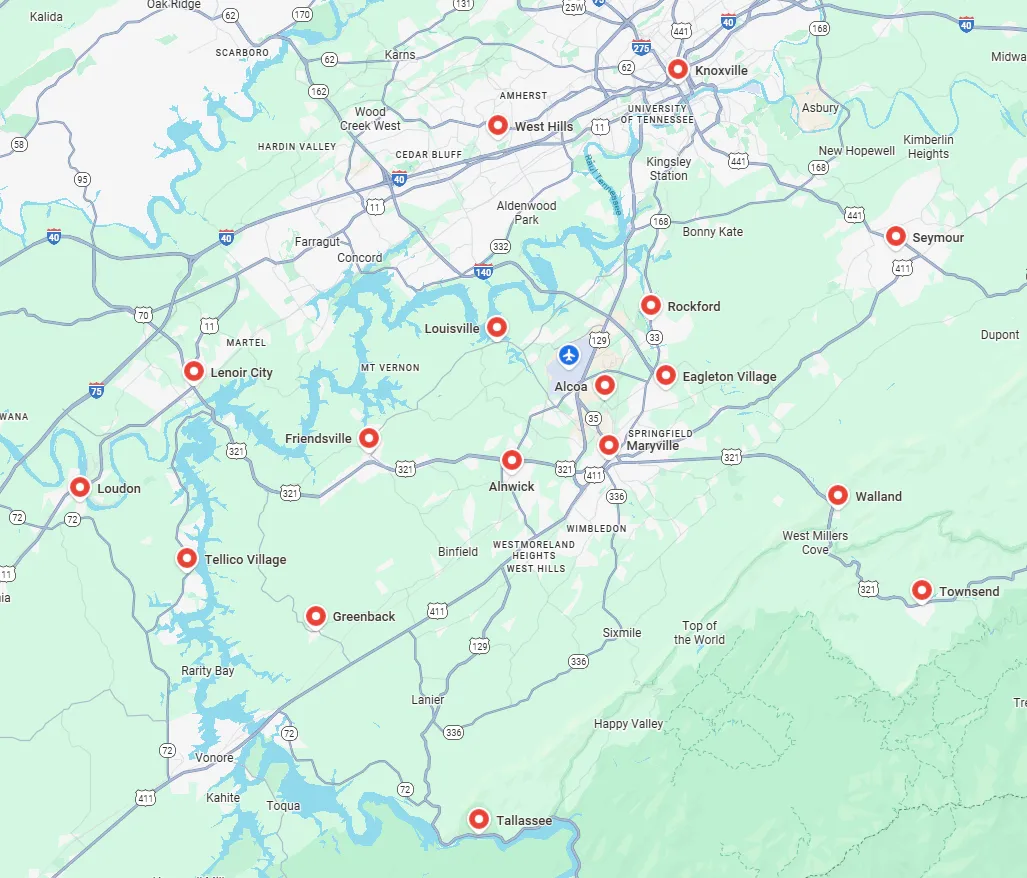Common HVAC Problems and How to Fix Them

Common HVAC Problems and How to Fix Them
Your HVAC system plays a critical role in maintaining indoor comfort, especially during extreme weather conditions. However, like any complex machine, HVAC systems are prone to issues over time. Understanding the most common HVAC problems and how to address them can help you avoid costly repairs and ensure that your system runs smoothly. This article will explore typical HVAC issues homeowners face, provide insights into their causes, and offer practical solutions to keep your system in optimal condition.
1. Airflow Issues
One of the most common HVAC problems is poor airflow. When airflow is restricted, your system has to work harder to maintain the desired temperature, leading to inefficiency and higher energy bills. Common causes of airflow issues include clogged air filters, blocked vents, and malfunctioning fans.
How to Fix It:
Start by checking the air filters. If they are dirty, replace them. Ensure that all vents and registers are open and unblocked. If the problem persists, you may need to inspect the blower motor or fan. In some cases, professional cleaning of the ductwork may be necessary.
2. Thermostat Malfunctions
A malfunctioning thermostat can lead to inaccurate temperature readings and inconsistent performance. Older, non-digital thermostats are particularly prone to these issues. A faulty thermostat may cause the HVAC system to run continuously, cycle on and off frequently, or fail to turn on altogether.
How to Fix It:
If you have an older thermostat, consider upgrading to a programmable or smart thermostat. For simple calibration issues, you can adjust the thermostat’s settings or replace the batteries. If the problem persists, consult an HVAC technician for further diagnosis.
3. Refrigerant Leaks
Refrigerant is essential for cooling your home, and a leak can severely compromise your HVAC system's efficiency. Low refrigerant levels cause your system to run longer, leading to poor cooling performance and higher energy bills. Signs of refrigerant leaks include ice buildup on the evaporator coil, hissing sounds, and warm air blowing from vents.
How to Fix It:
Refrigerant leaks should be handled by a professional technician. They will locate and repair the leak and then recharge the system with the correct refrigerant level. Attempting to fix a refrigerant leak yourself is not recommended, as it requires specialized tools and expertise.
4. Dirty or Frozen Evaporator Coils
The evaporator coil is responsible for absorbing heat from your home’s air. Over time, dust and dirt can accumulate on the coils, reducing their ability to transfer heat. In some cases, the coils can even freeze, causing the system to stop cooling entirely.
How to Fix It:
Regularly change your air filters to prevent debris from reaching the evaporator coils. If the coils are dirty, they can be cleaned with a soft brush or coil cleaner. If you notice ice buildup, turn off the system and allow the ice to melt. If the problem recurs, there may be an issue with airflow, refrigerant levels, or a malfunctioning component that requires professional attention.
5. Noisy Operation
Unusual noises coming from your HVAC system, such as banging, rattling, or squealing, are indicators of underlying problems. These noises could be caused by loose components, a failing motor, or debris caught in the blower.
How to Fix It:
First, inspect the system for any obvious loose parts and tighten them as needed. Lubricate the moving parts like motors and bearings to reduce friction. If the noise persists, contact an HVAC technician to assess and repair the issue.
6. Short Cycling
Short cycling is when the HVAC system turns on and off frequently without completing a full cooling or heating cycle. This issue can be caused by several factors, including a faulty thermostat, clogged air filters, or an oversized system.
How to Fix It:
Check the thermostat settings and ensure they are correct. Replace dirty air filters and inspect the evaporator coils for ice buildup. If the issue continues, it may indicate that your system is too large for your space, requiring a professional assessment and possible replacement.
7. High Energy Bills
If your energy bills suddenly spike without any change in usage, your HVAC system could be to blame. Common HVAC problems such as dirty filters, leaking ducts, and aging equipment can all lead to reduced efficiency and higher energy consumption.
How to Fix It:
Start by performing routine maintenance tasks like replacing filters, cleaning coils, and sealing any leaks in the ductwork. If your system is older, it may be time to consider upgrading to a more energy-efficient unit. Professional inspections and Tune-Ups can also help identify areas where energy efficiency can be improved.
8. Water Leaks
Water leaks around your HVAC unit usually indicate issues with the condensate drain line, which can become clogged with dirt and debris. In some cases, leaks can also be caused by frozen coils or problems with the condensate pump.
How to Fix It:
Inspect the condensate drain line for blockages and clear them using a wet/dry vacuum or pipe cleaner. Regularly cleaning the drain line can prevent future clogs. If the leak is due to frozen coils, follow the steps mentioned earlier to address the underlying cause.
9. Tripped Circuit Breakers
If your HVAC system frequently trips the circuit breaker, it’s a sign that the system is drawing too much power. This could be due to an electrical issue, a failing motor, or a compressor that is overheating.
How to Fix It:
Resetting the circuit breaker is a temporary solution. If it continues to trip, the issue could be serious and require professional attention. Avoid repeatedly resetting the breaker, as this can cause further damage to the system.
10. Uneven Cooling or Heating
Inconsistent temperatures across different rooms can be frustrating and are often caused by poor airflow, leaky ducts, or an improperly sized system. Uneven cooling or heating can lead to discomfort and increased energy usage.
How to Fix It:
Start by checking that all vents are open and unblocked. Inspect the ductwork for leaks and seal any gaps with duct tape or mastic sealant. If your system is not properly sized for your home, you may need to consult an HVAC professional for a more suitable solution, such as zoning or system replacement.
11. Getting Professional Help
If you're facing persistent HVAC problems or complex issues, it's wise to call in the pros. Professional technicians have the expertise to diagnose and fix your system safely and efficiently. They can handle everything from refrigerant leaks to electrical troubles, ensuring your unit runs smoothly. Plus, regular maintenance by a specialist can prevent future headaches and save you money in the long run. Don't hesitate to reach out for expert help to keep your home comfortable.
Maintenance Tips to Prevent Common HVAC Problems
- Change Air Filters Regularly
Dirty air filters are a leading cause of HVAC issues. Replace filters every 1-3 months to maintain good airflow and system efficiency. - Schedule Annual Inspections
Regular inspections and Tune-Ups by a professional technician can identify potential problems early and keep your system running smoothly. - Keep Outdoor Units Clean
Ensure that your outdoor unit is free from debris, leaves, and dirt. This allows for proper airflow and prevents the system from overheating. - Monitor Your Thermostat
Use a programmable or smart thermostat to maintain consistent temperatures and reduce wear on your HVAC system. - Seal Leaky Ducts
Inspect ductwork for leaks and seal any gaps to prevent energy loss and improve system efficiency.
Frequently Asked Questions (FAQ)
Q: What are the most common HVAC problems?
A: The most common HVAC problems include airflow issues, thermostat malfunctions, refrigerant leaks, dirty coils, and noisy operation.
Q: How often should I replace my air filters?
A: Air filters should be replaced every 1-3 months, depending on usage and the type of filter.
Q: Why is my HVAC system short cycling?
A: Short cycling can be caused by a faulty thermostat, clogged air filters, or an oversized system.
Q: Why is my energy bill suddenly higher?
A: A sudden increase in energy bills can be due to common HVAC problems like dirty filters, leaking ducts, or an aging system.
Q: How can I prevent refrigerant leaks?
A: Regular maintenance and inspections can help detect refrigerant leaks early. Ensure your system is properly sealed and maintained.
Q: Why is my HVAC system making loud noises?
A: Loud noises can be caused by loose components, a failing motor, or debris caught in the blower. Tightening parts and lubricating moving components can help.
Q: What causes uneven cooling or heating?
A: Uneven cooling or heating is often due to poor airflow, leaky ducts, or an improperly sized system.
Q: How do I clean my evaporator coils?
A: Evaporator coils can be cleaned with a soft brush or coil cleaner. Regular maintenance helps prevent dirt buildup.
Q: Why is water leaking from my HVAC unit?
A: Water leaks are usually caused by a clogged condensate drain line or frozen evaporator coils. Clearing the drain line and checking for frozen coils can resolve the issue.
Q: What should I do if my circuit breaker keeps tripping?
A: If your HVAC system trips the circuit breaker repeatedly, it could indicate an electrical issue or an overheating component. Contact a professional technician for diagnosis and repair.





